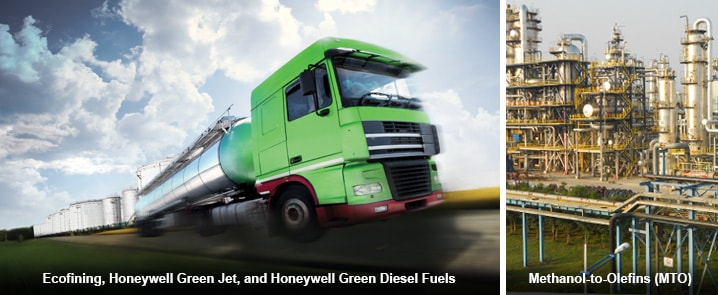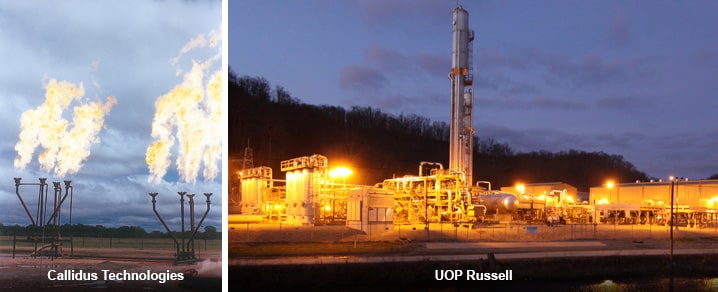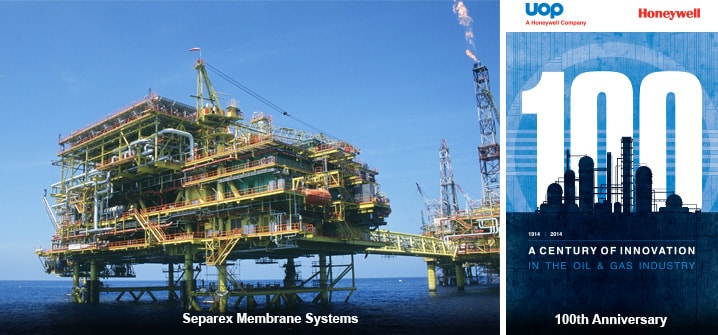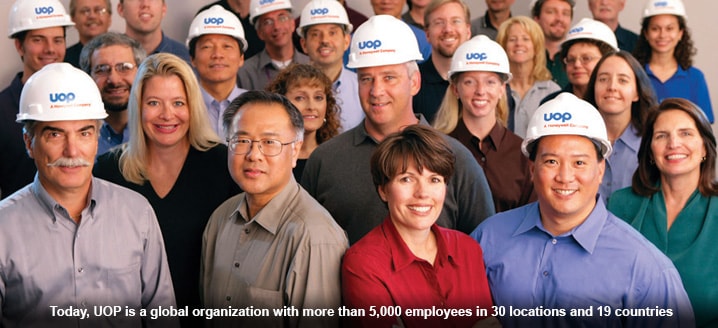Keep up with what’s new.
Connect with us on LinkedIn for news, insights and related topics.

On Oct. 3, 2005, Honeywell announced its acquisition of Dow’s 50-percent stake in UOP, closing the deal on Nov. 30 for $825 million, making UOP a wholly-owned subsidiary of Honeywell, and part of its Performance Materials and Technology business unit. Almost immediately, Honeywell began new investments in UOP’s research and development capabilities and funding major development projects.
In 2006, UOP developed Honeywell Green Diesel™ technology, a fuel chemically identical to petroleum diesel, but made from inedible plants and waste oils. This was followed by contracts for the Methanol-to-Olefins (MTO) process to make plastics from coal and natural gas, the Uniflex™ process to convert heavy oil residuum into valuable fuels, and Honeywell Green Jet Fuel™ — an aircraft fuel made from renewable sources.

In 2012, UOP acquired 70 percent of the Thomas Russell Company, a leader in modular plants for the natural gas industry, to form UOP Russell. Also that year, the company added Callidus Technologies, a manufacturer of combustion equipment including process heaters, burners, flares and other equipment.

By this time, a revolution in natural gas was well underway, with cost-effective ways to retrieve it from shale formations, remote locations and even off-shore. UOP’s Separex™ Membrane Systems and other technologies clean natural gas so it can be sent through pipelines and processed into LNG, moving from places with abundant supplies to new markets where gas is in high demand. Once marginal or inaccessible sources of gas are now highly productive fields, making natural gas a cost-effective source of fuel, power and petrochemical compounds.

UOP celebrated its 100th anniversary in 2014 with a series of customer recognition events and employee celebrations, and surpassing $3 billion in revenue for the first time.
Today, UOP is a worldwide organization with more than 5,000 people working in 30 offices and plants located in 19 countries. UOP continues to invest in research and development, operating the world’s leading centers of research for the catalytic processing of hydrocarbons. Scientists and engineers from around the world are inventing better ways to convert oil, natural gas, coal and biomass into the fuels and chemicals required to support the growth and well-being of our world, while keeping the air and water we depend on clean.
Connect with us on LinkedIn for news, insights and related topics.

Did you know that your internet browser is out of date?
Your browser is out of date, and may not be compatible with our website.
Just click on the icons to download a compatible browser.
By closing this window you acknowledge that your experience on this website may be degraded.